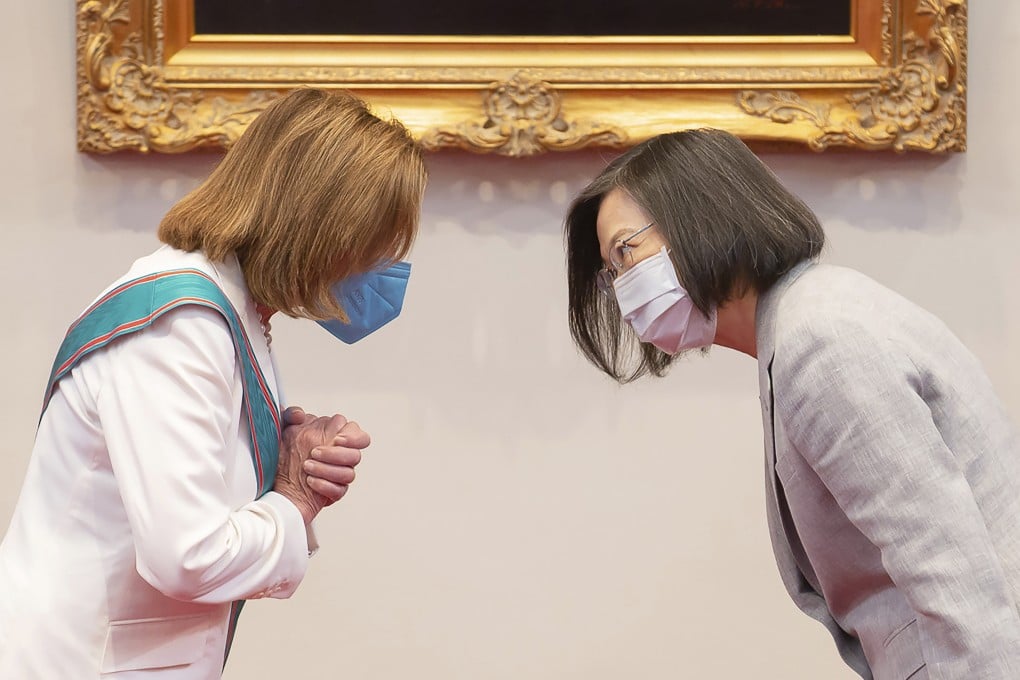Advertisement
Letters | Biggest winners of Nancy Pelosi’s Taiwan visit? Tsai Ing-wen and her party, unless Beijing changes course
- Readers discuss the implications of the US House speaker’s visit to Taiwan, the US’ obligations under the Taiwan Relations Act, and the importance of language to determining national allegiance
Reading Time:3 minutes
Why you can trust SCMP
14

Feel strongly about these letters, or any other aspects of the news? Share your views by emailing us your Letter to the Editor at [email protected] or filling in this Google form. Submissions should not exceed 400 words, and must include your full name and address, plus a phone number for verification.
Taiwan’s pro-independence Democratic Progressive Party and its leader Tsai Ing-wen are the biggest winners of US Speaker of the House Nancy Pelosi’s recent visit to the island. Beijing had no choice but to react with military threats, which will turn off Taiwanese voters, resulting in more votes for the DPP and Tsai.
In 1996, Beijing also tried a similar military threat resulting in a landslide victory for Lee Teng-hui, the father of Taiwan’s independence movement.
Advertisement
It can be concluded that the majority of Taiwanese people do not accept Beijing’s reunification proposal based on “one country, two systems”. If Beijing does not change course, then war will be inevitable, and the US would be happy to watch such civil war, and not worry so much about China overtaking the US’ dominant position as a world power.
A new strategy “one Chinese, two systems” (一中兩制) could be the answer. If nearly 30 countries of different backgrounds and diverse culture can form a European Union, surely the People’s Republic of China and Chinese Taiwan can form a “Chinese Union”. A bilateral treaty can spell out common grounds such as travel, trade and heritage, and add more elements as the relationship improves.
Advertisement
The key is that the Taiwanese recognise themselves as Chinese by blood, but not under the authority of “one country” or the Chinese Communist Party. Taiwan is different from Hong Kong.
Advertisement
Select Voice
Choose your listening speed
Get through articles 2x faster
1.25x
250 WPM
Slow
Average
Fast
1.25x